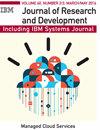Online optimization of first-responder routes in disaster response logistics
IF 1.3
4区 计算机科学
Q1 Computer Science
引用次数: 9
Abstract
After a disaster, first responders should reach critical locations in the disaster-affected region in the shortest time. However, road network edges can be damaged or blocked by debris. Since response time is crucial, relief operations may start before knowing which edges are blocked. A blocked edge is revealed online when it is visited at one of its end-nodes. Multiple first-responder teams, who can communicate the blockage information, gather initially at an origin node and are assigned to target destinations (nodes) in the disaster-affected area. We consider multiple teams assigned to one destination. The objective is to find an online travel plan such that at least one of the teams finds a route from the origin to the destination in minimum time. This problem is known as the online multi-agent Canadian traveler problem. We develop an effective online heuristic policy and test it on real city road networks as well as randomly generated networks leading to instances with multiple blockages. We compare the performance of the online strategy with the offline optimum and obtain an average competitive ratio of 1.164 over 70,100 instances with varying parameter values.灾害应急物流中第一响应路径的在线优化
灾难发生后,第一响应者应该在最短的时间内到达受灾地区的关键地点。然而,道路网的边缘可能会被碎片损坏或堵塞。由于响应时间至关重要,救援行动可能在知道哪些边缘被阻塞之前就开始了。当在其末端节点之一访问被阻塞的边缘时,它会在线显示。多个能够沟通堵塞信息的第一反应小组最初聚集在一个原始节点,并被分配到受灾害影响地区的目标目的地(节点)。我们考虑将多个团队分配到一个目的地。目标是找到一个在线旅行计划,使至少一个团队在最短时间内找到从起点到目的地的路线。这个问题被称为在线多代理加拿大旅行者问题。我们开发了一个有效的在线启发式策略,并在真实的城市道路网络以及随机生成的网络上进行了测试,导致多个阻塞的实例。我们比较了在线策略与离线最优策略的性能,并在70,100个具有不同参数值的实例中获得了1.164的平均竞争比。
本文章由计算机程序翻译,如有差异,请以英文原文为准。
求助全文
约1分钟内获得全文
求助全文
来源期刊

IBM Journal of Research and Development
工程技术-计算机:硬件
自引率
0.00%
发文量
0
审稿时长
6-12 weeks
期刊介绍:
The IBM Journal of Research and Development is a peer-reviewed technical journal, published bimonthly, which features the work of authors in the science, technology and engineering of information systems. Papers are written for the worldwide scientific research and development community and knowledgeable professionals.
Submitted papers are welcome from the IBM technical community and from non-IBM authors on topics relevant to the scientific and technical content of the Journal.
 求助内容:
求助内容: 应助结果提醒方式:
应助结果提醒方式:


